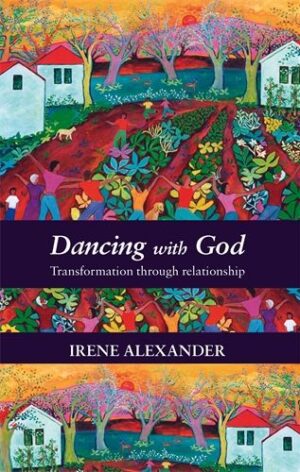



This chapter reminds us how much Jesus spoke of the kingdom of God. It is Luke who uses that phrase but Matthew speaks of the kingdom of heaven. Words matter and this chapter is attempting to clarify what it was Jesus was talking about so much. First let’s say what he was not talking about. He was not talking about “pie in the sky when you die.” Yes, he spoke of eternal life and living with God forever, but the kingdom of heaven is not just an “after-we-die” place. It is here and now, and who we are in this world, and in this time.
The kingdom of God is where God reigns as king – it is my heart relationship with Creator God, and how I live my everyday life in response to him. Before we unfold this further pause and notice how Jesus tells us of the kingdom. He uses stories, parables, images, pictures – “The kingdom of heaven is like…” He knows that we are better able to recognise and know the kingdom by heart knowing, so he tells stories to awaken our hearts, to light our imagination, to remind us of an inner recognition.
Take some time to choose one of his parables and share with the group how it speaks to you of the kingdom.
Words matter and so the words around kingdom of God have been debated. Some have disliked the gender specificity. In fact the Greek word is a feminine noun (as are other collective nouns) but kingdom implies a king. Some people therefore prefer realm of God, or even kindom – a place where all are kin, brothers and sisters together in God’s family. You may want to discuss in your group which phrasing is best for you, while accepting, the nuances others prefer. Personally for me, I love the phrase the kingdom of heaven, the kingdom of God, because I grew up reading the King James Bible and absorbing the sense of God’s presence within us, and among us collectively, and the association with a beloved King drawing us into his household. However I am aware that those words don’t work for others and we choose not to exclude or offend over a matter of words.
When Pilate asked Jesus directly if he was the king of the Jews, Jesus answered, “My kingdom is not of this world. If it was my servants would fight..” He is clearly indicating that God’s kingdom is not a geographical territory, not part of a hierarchical system. It is an inner spiritual reality from which flows a way of life, a code of behaviour, a way of being, in relationship and in service.
Take some time to reflect on this understanding.
How do you see your life as being part of the realm of God, the place where God is present, where God is sovereign?
How does the inner reality of surrender to God show itself in your outward life and behaviour?
What are some examples of how this makes you different from our surrounding culture?
Jesus called the Pharisees hypocrites, mask-wearers, because their focus was on their outward behaviour, keeping each jot and tittle of the law, tithing the parsley from the garden, ostentatiously washing their hands up to their elbows, keeping distance from those they considered unclean. The church has often been seen by outsiders as hypocritical, showing more judgement than mercy. How would it change our behaviour, our churches, our relationships with our neighbours, if our focus was on inner surrender and on the needs of the broken in our world?
Take some time to discuss the changes we would like to see, starting with the changes in ourselves.
The last sentence of this chapter is attributed to Clare of Assisi, she who like Francis, had been rich but became poor in order to serve the poor. He who came poor from heaven, links to Paul’s words in Philippians 2: he emptied himself. Jesus emptied himself of the riches of glory to live among the poor, to search out the marginalised, to identify with the outcast.
Read the first part of the chapter together. Just one person reading to “No one could take away his shame.”
As you listen imagine yourself into the life of this man.
After a pause a narrator reads the final section. This time keep a silence for reflection and then share one sentence of what it has been like for you to be part of the story in this way.
What did you notice about the man, about Jesus, about the religious ones? Notice the parts of yourself that identify with the man’s shame, with Jesus’ anger, with the Pharisees’ critique.
Where has the story taken you?
How do you see the kingdom played out in the story?